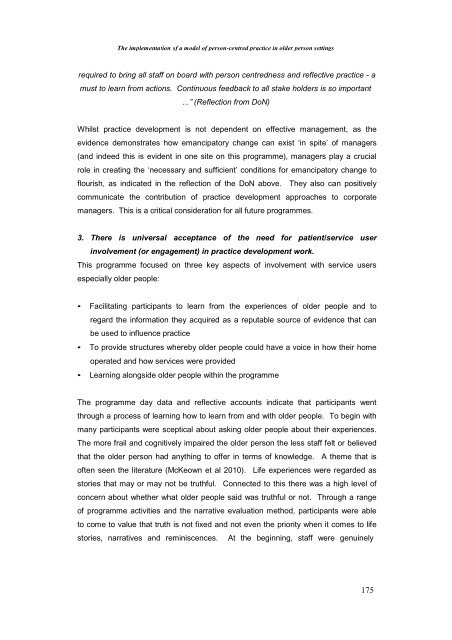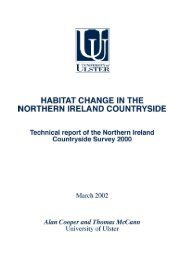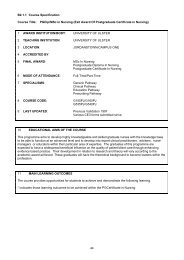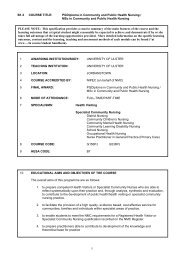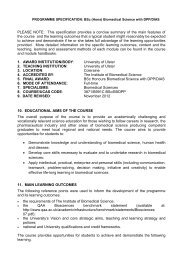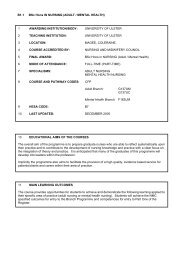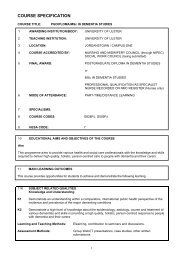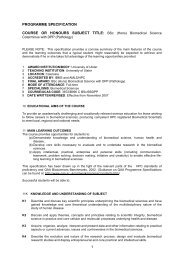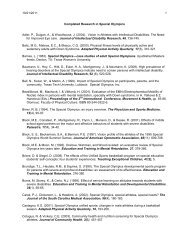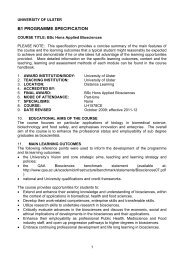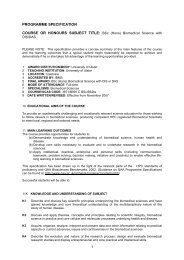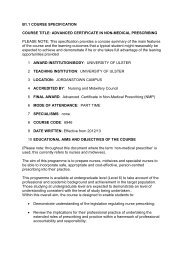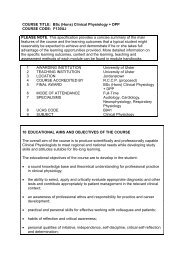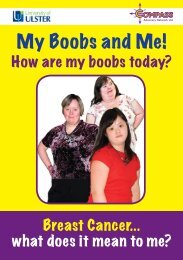The Implementation of a Model of Person-Centred Practice In Older ...
The Implementation of a Model of Person-Centred Practice In Older ...
The Implementation of a Model of Person-Centred Practice In Older ...
You also want an ePaper? Increase the reach of your titles
YUMPU automatically turns print PDFs into web optimized ePapers that Google loves.
<strong>The</strong> implementation <strong>of</strong> a model <strong>of</strong> person-centred practice in older person settings<br />
required to bring all staff on board with person centredness and reflective practice - a<br />
must to learn from actions. Continuous feedback to all stake holders is so important<br />
...” (Reflection from DoN)<br />
Whilst practice development is not dependent on effective management, as the<br />
evidence demonstrates how emancipatory change can exist ‘in spite’ <strong>of</strong> managers<br />
(and indeed this is evident in one site on this programme), managers play a crucial<br />
role in creating the ‘necessary and sufficient’ conditions for emancipatory change to<br />
flourish, as indicated in the reflection <strong>of</strong> the DoN above. <strong>The</strong>y also can positively<br />
communicate the contribution <strong>of</strong> practice development approaches to corporate<br />
managers. This is a critical consideration for all future programmes.<br />
3. <strong>The</strong>re is universal acceptance <strong>of</strong> the need for patient/service user<br />
involvement (or engagement) in practice development work.<br />
This programme focused on three key aspects <strong>of</strong> involvement with service users<br />
especially older people:<br />
• Facilitating participants to learn from the experiences <strong>of</strong> older people and to<br />
regard the information they acquired as a reputable source <strong>of</strong> evidence that can<br />
be used to influence practice<br />
• To provide structures whereby older people could have a voice in how their home<br />
operated and how services were provided<br />
• Learning alongside older people within the programme<br />
<strong>The</strong> programme day data and reflective accounts indicate that participants went<br />
through a process <strong>of</strong> learning how to learn from and with older people. To begin with<br />
many participants were sceptical about asking older people about their experiences.<br />
<strong>The</strong> more frail and cognitively impaired the older person the less staff felt or believed<br />
that the older person had anything to <strong>of</strong>fer in terms <strong>of</strong> knowledge. A theme that is<br />
<strong>of</strong>ten seen the literature (McKeown et al 2010). Life experiences were regarded as<br />
stories that may or may not be truthful. Connected to this there was a high level <strong>of</strong><br />
concern about whether what older people said was truthful or not. Through a range<br />
<strong>of</strong> programme activities and the narrative evaluation method, participants were able<br />
to come to value that truth is not fixed and not even the priority when it comes to life<br />
stories, narratives and reminiscences. At the beginning, staff were genuinely<br />
175


